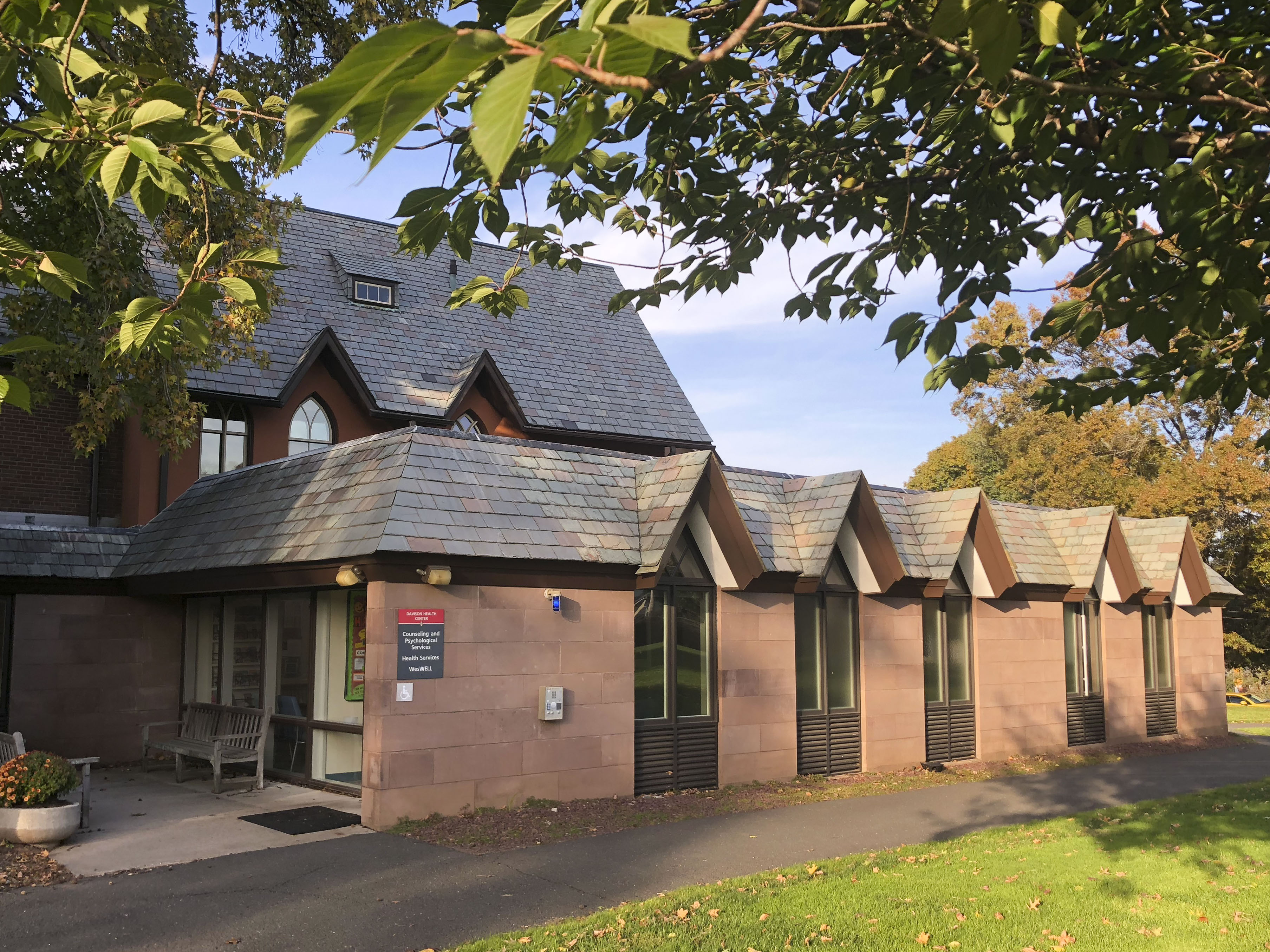
Ava Nederlander, Photo Editor
While most students have left campus, over 300 have petitioned and been approved to stay on campus for the rest of the semester, according to Vice President for Student Affairs Mike Whaley. But continuing to have students on campus means that the University has to ensure that many of its crucial resources are up and running, perhaps most importantly, Davison Health Center.
Davison staff are taking extra precautions to protect themselves and students, in addition to planning for potential on-campus cases. As of April 2, there have been three possible cases of the novel coronavirus disease (COVID-19) on the Wesleyan campus that Davison Health Center Medical Director Tom McLarney is aware of. The individuals were not tested, but instead quarantined based on symptoms, McLarney told The Argus.
Davison will still be open Monday through Friday from 9 a.m. to 5 p.m., but has closed its usual Saturday hours and is no longer accepting walk-in appointments. Instead, as McLarney wrote in an all-campus email, students are advised to call Davison to make an appointment in order to minimize person-to-person contact.
“Walking in could expose not only any other student [to what] was in the air, but our staff to it,” McLarney said in an interview with The Argus. “So we’re saying, ‘Please call, we’ll give you a time to come, and when you come here we will unlock the door.’ We do have the doors locked, but we will unlock the doors and get you right in the room. You don’t have to sit in a waiting room and wait; we’ll get you seated and taken care of right away.”
McLarney noted that not many people have been going to the Health Center, but instead are taking advantage of the 24/7 call coverage offered. During these calls, students can describe symptoms and receive guidance from either McLarney or Assistant Medical Director Emily Daponte.
“A lot of what we’re doing is talking to folks on the phone,” McLarney explained. “This is a national recommendation, maybe even global recommendation. Since we’re dealing with a virus where there is no treatment, there is no vaccine, in a young healthy population for the most part we just want to talk with people and make sure they have no concerning symptoms.”
When students present with potential or likely COVID-19 symptoms, though, Davison is unable to confirm the diagnosis as they have yet to attain testing kits.
“In an ideal world, we would test everybody, and take those who are positive and put them on 14-day quarantine,” McLarney said. “However, since we don’t have that, that’s why we’re preaching social distancing: stay six feet away, avoid large groups. It’s almost like the universal precaution for coronavirus because we don’t know. You could have it, I could have it. We just don’t know.”
Although the lack of tests provide a sense of uncertainty, it means fewer individuals interacting with healthcare providers, which can slow spread and put less of a burden on healthcare supplies. The process of testing often exhausts Personal Protective Equipment (PPE), which is currently in rare supply in the United States. Health professionals are pushing for less testing as a way to ration PPE.
“Even the CDC says most people don’t have to be tested if they have symptoms suggestive of COVID-19. Let’s take care of them as if it’s COVID-19,” McLarney explained. “Make sure they’re quarantined, make sure they’re hydrated, treating their fevers, keeping an eye on them, and we’ll keep them in 14 days. We can let them out in seven days provided that their symptoms have significantly proved and they’ve been without fever for 72 hours without taking any kind of fever reducer.”
The University has two locations in mind as possible spaces to quarantine infected students: Park Washington, an apartment complex on Washington Street right across from Davison that houses graduate students, and High Rise.
“Park Washington would only be used for graduate students, who are already living there,” Director of Residential Life Fran Koerting wrote in an email to the Argus. “Other residents of Park Washington would not have to relocate.”
And although other students may be living in High Rise, Koerting told The Argus that they have been informed of its possible use for quarantined undergraduate students.
“Those who live in High Rise and were approved to stay were informed the building would be used for students who need to be quarantined, and we were happy to find them another location if they were not comfortable remaining in the building,” Koerting wrote.
While High Rise provides the University with about 90 rooms that can be used for quarantined patients, McLarney is hopeful that not many rooms will be needed.
“Seeing the lack of people asking for appointments, I’m just hoping that it stays that way,” McLarney said.
McLarney added that he is in constant contact with the State Health Department and reads CDC updates daily to ensure that the University is up to date on what health departments are recommending.
“We don’t know where this is gonna go,” McLarney said. “We are prepared as much as we can be and we’re gonna take things one day at a time and keep those goals up of keeping our students safe and healthy as best as we can.”
Expect updates at wesleyanargus.com and on The Argus’ Twitter account, @wesleyanargus. If you have any further questions or tips, please email argus@wesleyan.edu.
Hannah Docter-Loeb can be reached at hdocterloeb@wesleyan.edu.
Comments are closed